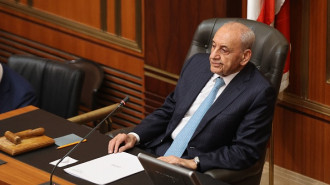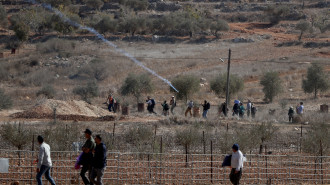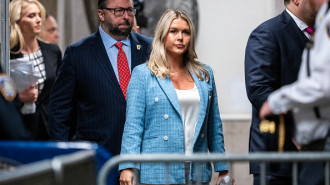Qatar blasts 'baseless' Saudi, allies terrorism list
The strong reaction came hours after Saudi Arabia, the United Arab Emirates, Egypt and Bahrain placed 59 individuals and 12 entities - Qatar based or funded by Qatar - on a "terror list".
"This list is connected to Qatar and serves suspicious agendas in an indication of the duality of Qatar policies," the joint statement read, the first issued by all four countries since Monday when they severed ties with the gas-rich emirate.
Qatar "announces fighting terrorism on one hand and finances and supports and hosts different terrorist organisations on the other hand," they claimed.
Interestingly, some names on the list, such as widely respected Doha-based Egyptian cleric Yusuf al-Qaradawi, not long ago were welcomed and celebrated in Saudi Arabia.
Qatar, which has long exercised an independent streak in its foreign policy, immediately rebuked the allegations that it supports terrorist groups, saying such accusations have "no foundation in fact."
"Our position on countering terrorism is stronger than many of the signatories of the joint statement -- a fact that has been conveniently ignored by the authors," Qatar added.
Along with Qataris, many on the list are individuals and groups from Egypt, Bahrain and Libya.
The list, however, contains at least two names already designated internationally as terrorist financiers, and against whom Qatar took action, according to a previous US Department of State report.
Twitter Post
|
Those two, Saad al-Kaabi and Abdul Latif al-Kawari, are among dozens of individuals and entities named Friday by Saudi Arabia and its three allies.
In its latest Country Reports on Terrorism, the US State Department said Qatar in 2015 froze assets and imposed travel bans on Kaabi and Kawari, both of whom are Qatari citizens.
"Qatar has made efforts to prosecute significant terrorist financiers," the State Department said.
In severing diplomatic ties with its Gulf neighbour on Monday, Riyadh accused Qatar of supporting groups including some backed by Iran.
It claimed Doha was harbouring "terrorist and sectarian groups that aim to destabilise the region including the Muslim Brotherhood, Daesh (the Islamic State group) and al-Qaeda".
Qatar has consistently denied the accusations against it, suggesting the recent joint decision to sever ties was based on "baseless fabricated lies" and a mere attempt at enforcing guardianship over Doha.
Riyadh has itself faced accusations of tolerating or even supporting extremists, in particular after the 11 September 2001 attacks on the United States, with 14 out of 19 attackers holding Saudi nationality (none were Qatari).
'Never surrender'
The newly issued list came hours after Qatar said it would not "surrender" and rejected any interference in its foreign policy.
Qatar's Foreign Minister Sheikh Mohammed bin Abdulrahman al-Thani said on Thursday that no one had the right to intervene in the country’s foreign policy.
"We will never be ready to surrender the independence of our foreign policy," Sheikh Mohammed told reporters in Doha.
"We have been isolated because we are successful and progressive. We are a platform for peace not terrorism... This dispute is threatening the stability of the entire region," he said.
 |
We will never be ready to surrender the independence of our foreign policy. - Sheikh Mohammed |
 |
The foreign minister said Qatar had not yet been handed demands by countries that cut off ties with Doha, but he insisted the ongoing crisis would be solved by peacefully.
"We don't see a military solution as an option," he said, adding that Qatar would not shut down its al-Jazeera news network.
Sheikh Mohammed also said Qatar's ruling emir will not leave the country while it is "in blockade" to attend a meeting with US President Donald Trump at the White House to end the crisis.
Analysts say the crisis is in part an extension of a pre-existing dispute which saw Saudi Arabia, the UAE and Bahrain temporarily recall their ambassadors from Doha in 2014 over alleged Qatari support for Egypt's Muslim Brotherhood.






 Follow the Middle East's top stories in English at The New Arab on Google News
Follow the Middle East's top stories in English at The New Arab on Google News


